The amazing women competing for the Golden Globe Best Actress in a Drama
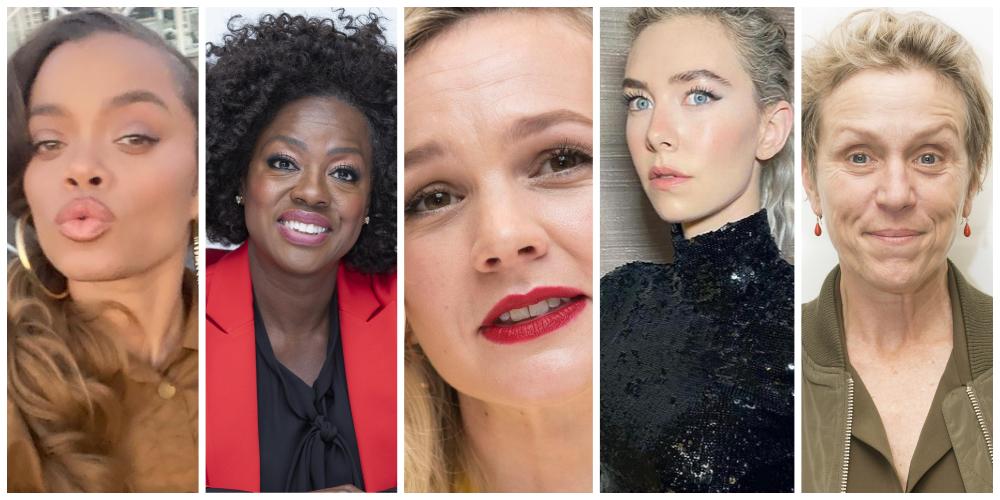
Come February 28, when we celebrate the 78th Golden Globe Awards, we have five amazing actresses competing for the Best Actress in a Motion Picture – Drama award.
Frances McDormand portrays Fern, who decides to join a community of nomads while living in an RV after she loses her job, in the Chloe Zhao-helmed neo-Western drama “Nomadland.”
Viola Davis embodies the highly regarded blues singer Ma Rainey in the George C. Wolfe-directed drama “Ma Rainey’s Black Bottom.”
Andra Day was memorable as the jazz singer Billie Holiday in the biopic “The United States vs. Billie Holiday” directed by Lee Daniels.
Vanessa Kirby portrays Martha Weiss in the heart-tugging drama “Pieces of a Woman,” written by Kata Weber and directed by Kornel Mundruczo.
And last but not least, Carey Mulligan is Cassandra “Cassie” Thomas in the feature directorial debut of actress Emerald Fennell, “Promising Young Woman.”
We talked to all five actresses and below are excerpts from our conversations with them:
Frances McDormand
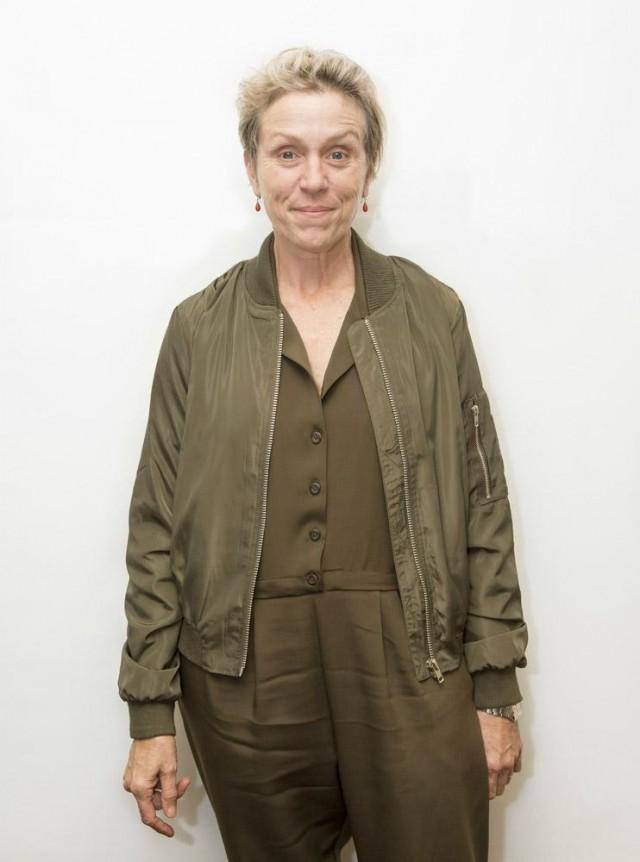
What kind of odd jobs did have before you had this career that you have now?
I started working when I was about 15. I washed dishes in restaurants like a lot of us did, did some babysitting, all those jobs. When I was in college and graduate schools, I did a lot of work study. I worked in the cafeteria at drama school, I worked in the shop building sets. I worked in the costume department.
During the summers, I was a manager of a laundromat doing press and fold we called it, wash and fold, washing peoples' laundry and folding it. My first foray into wash and fold, I left a red sock in a woman's whites and everything turned pink and that was a disaster but she still paid — I was so amazed that she still paid for her laundry. It was folded very nice.
I often found that I would have what we call sidewalk sales. Every time I moved in graduate school, I would sell a few things on the sidewalk to get enough money to move to the next apartment.
I actually sold a flute in one of those sidewalk sales that I was always really sad. I told Chloe (Zhao) about that. I was always sad that I had sold that flute so she found me another one for the movie. That's why Fern was playing a flute in the movie because Chloe thought it might be fun to see how much I remembered and but I was very fortunate by the time I graduated from drama school, I only had 3 jobs that weren't related to acting.
I worked as a cashier in a restaurant in New York. I did word processing, answering fan mail for AC/DC and one other word processing job then besides that, I was able to support myself as an actor.
When you were filming it, did you travel in an RV with the nomads filming with them or going from site to site?
No, not entirely. So there were 28 of us, I was the oldest at 61 and our youngest was 24. We were a nomadic company, the same way a lot of crews are, we were quite small.
So we were able to move, I guess we had a caravan of about probably twelve vehicles. One was our production vehicle, which was an RV, a very small kind, the ones that you drive — It’s like a cab, but you drive them. But most of us were just in cars.
I did sleep in a van, but not often. I did not sleep in Vanguard, because that was the plan, but oh, I found out very soon that that would be like sleeping on a film set every day, because that is where we stored the equipment.
There were a lot more people in that van with me than it seems like are in the van with Fern. Sometimes there were four other people in the van with me, the sound guy Wolf, Josh the cinematographer, Chloe the filmmaker, with a small propane heater hooked up, which was often kind of scary. So we did not live in vans, but we lived nomadically.
We had two young people, Nick and Angie, who traveled with us everywhere and cooked our meals. They did all the marketing locally. They washed the dishes in the bathtub in their hotel room. We all stayed mostly in Holiday Inn Express, that was our go-to. Our first place that we stayed was Frontier Cabins near Wall South Dakota, that was really fun. So yeah, we did not live in vans, but we did travel in a caravan in our vehicles from place to place.
Viola Davis
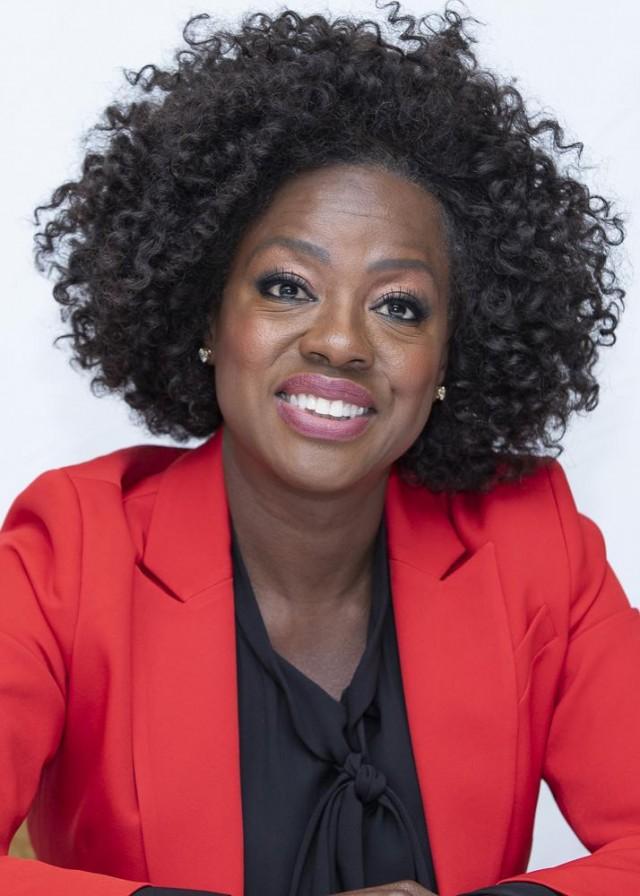
Who were the strong women who influenced you during your childhood?
I am always hesitant to use the word "strong" or "black girl magic," because strong is relative. They were women who certainly were not molded in the same way you see them molded on screen. My Aunt Joyce, besides my mom — my mom is another one who I thought was beautiful — my Aunt Joyce probably, she was big, she was definitely close to over 250 pounds easy, but absolutely beautiful.
She always had the latest fashion, the elephant pants, that’s what we called them, with the flare leg pants and earrings and the big afro and the lipstick and she swished her hips. And you could tell she could get any man. I did not see any sense of someone who should apologize for her body, apologize for her presence, or apologize for herself to anybody, she was who she was. And that’s what I had to draw on.
I had to draw on a person, a persona, that had its own agency that wasn’t defined by anybody else, by the oppressor, by the white gaze. Because if I did, I would have tried to cover my breasts, I wouldn’t have swished my hips when I was in that tent. But in our culture, we define ourselves for ourselves and we are alone, we are together, that is not who we are, we are not apologetic, we understand a sense of our worth.
Can you talk about your co-star, the late Chadwick Boseman? You mentioned in an interview that you did not know he was sick. So when you heard he was gone, it must have been awful.
Complete devastation. I wailed, I’m not going to lie, I wailed. Everyone did, it’s how you react when someone dies. But at the end of the day, he is probably the perfect example at this time of — we take what they say with a grain of salt.
It is what you leave behind, what you do with the time you have on this earth. Because even if you live to be 100, it pales in comparison to how long you’re going to be dead. So the only thing you could control, the famous saying, when the last person dies who has a memory of you that’s when you’ll fully be dead. And so what do you do with your dash of time?
You’re leaving a legacy, crumbs for people to just pick up, be inspired by, help them to feel alive. And that’s what he did. I wish everyone had the opportunity to be in his presence, be in Chadwick’s presence, not Chadwick Boseman just the actor, Chadwick’s presence.
What was he like?
Absolute integrity, absolute integrity. With the same agent he had from the moment he stared acting, relatively unheard of, not interested in any way about what he did before.
He didn’t want to hear about “Black Panther,” there’s no sense of him being number one or number two, whatever, on the call sheet, no sense of any of that, he just wanted to love the work and honor the other actors who were…he left Chadwick at the door and he came in and he absolutely committed himself to Levee. That’s the beauty of his legacy.
And then of course his family and his beautiful wife was just an extension of his authenticity and his integrity. Beautiful human being, really the real deal.
Andra Day
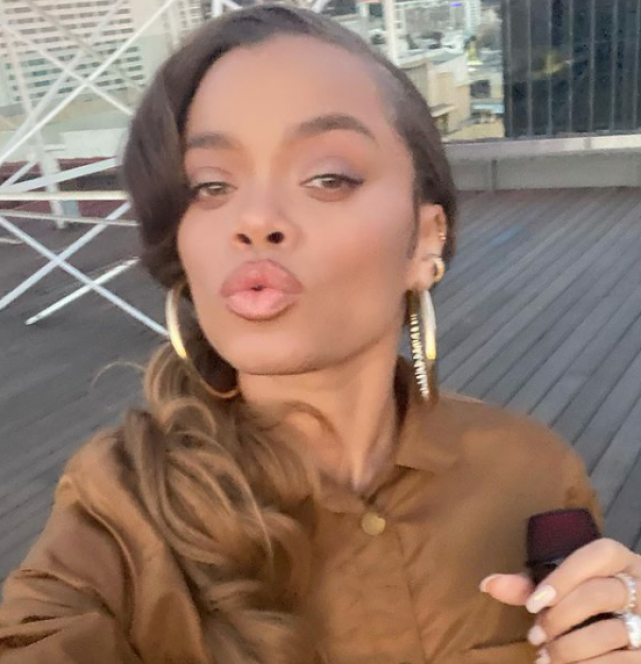
At what point in your life did you start to know about Billie Holiday?
I was eleven years old when I was introduced to Billie Holiday. And I heard a song called “Sugar” which is still one of my favorites, and I remember being confused by her voice, because I was so young at the time and all the singers I knew I was like, this sounds nothing like Whitney Houston or Aretha Franklin, what is this?
I was just confused by it. But I found myself transfixed. I could not take my ears and my eyes and my soul off of her.
And then I heard “Strange Fruit” and I knew who I was listening to and whatever I was listening to I couldn’t fully comprehend at eleven. It is very, very important and it applies to me directly. And really her ownership of her voice helped me to own my voice, and her singing “Strange Fruit” helped me to say okay, if I’m going to sing, even if I’m just talking about my life or things that I’ve been through, I want it to move the needle for people. That’s the goal is for it to inspire people to heal. And so she really inspired. She colored and informed a lot of what I do today.
How did you get out of her character every night after filming and get out of the pain while she was doing drugs, that maybe lasted through the filming of it?
To be honest with you — and yes it was very painful and it’s still painful because there’s a lot of relevance still there unfortunately, some seventy-odd years later.
But to be honest with you I did not get out of the pain of it or the character of it every night. And honestly, I don’t think I’ve been in it and living in it or trying to live in it for the last years, including filming and then this past year with all the pickup shots and the ADR.
So it’s been entirely three years, so honestly, I am praying a lot. I’m a very spiritual person and I try to remain grounded in those things. And just to remain grateful, to remember that you are telling her story and to be grateful that this was done and that people will get to know her as the Godmother of Civil Rights.
But honestly, I’m still trying to come out of it and I do feel, I’m trying to find out who I am now in this season and in this period of my life. So I’m still kind of a little bit in the throes of it, I’m feeling a lot more comfortable lately but yeah, it’s taken a lot of spiritual personal care and therapy to make my way out of that, such an urgent headspace.
Vanessa Kirby
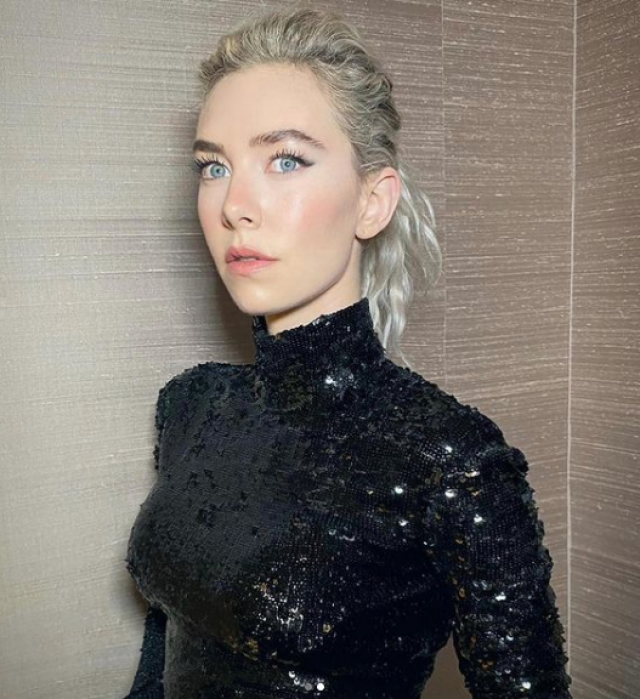
What have you learned from your very accomplished parents that still helps you today?
I felt really lucky, actually. I didn't grow up in a family of actors or anyone that did the business at all which I am quite appreciative of now in a way because I found I never knew how I would even do it professionally.
I am sure we've all felt that at some point like how do I get into this thing that I love but my dad did love Shakespeare and so they took me to a lot of theatre and I really owe them for that because I saw so many plays.
I remember when I was really tiny, I was a bit bored and then suddenly when I was 11, I watched Corin and Vanessa Redgrave play brother and sister in “The Cherry Orchard” at the theatre and it was in that moment where I like looked over the balcony of the theatre and I remember being so moved and it felt like I was there and I left the theatre with this tingly feeling all over that I think we all have from cinema sometimes when you just go like I feel different because of it and whatever that magic was I knew that I would love to get involved and so I have them to thank I think for all the theatre and all the films they showed me.
When I was really little my dad would make us watch like “Midnight Express” and (laughs) “Chinatown” and all those things so even though they weren't theatrical they gave me a brilliant education.
And what did you learn from your mother?
My mom is an amazing reader so she'd read a load of books to me and I think she like really cultivated imagination and so I was really that encouraged and also, she used to drive me to so many theatre classes and auditions where I was terrible.
I did like so much learning in those early years of how everything worked and so they were so supportive especially because I'm sure you must have heard many times that it's always whenever you hear someone say oh, my child wants to be an actor everyone goes “Oh, God, that's such a hard life.”
I think they say that because there are so many nos. You get rejected so many times out of a hundred it'd be like 90 times, if not more, and so you have to get used to that and that is the strange part of the job but you have to try and carry on anyway.
Carey Mulligan
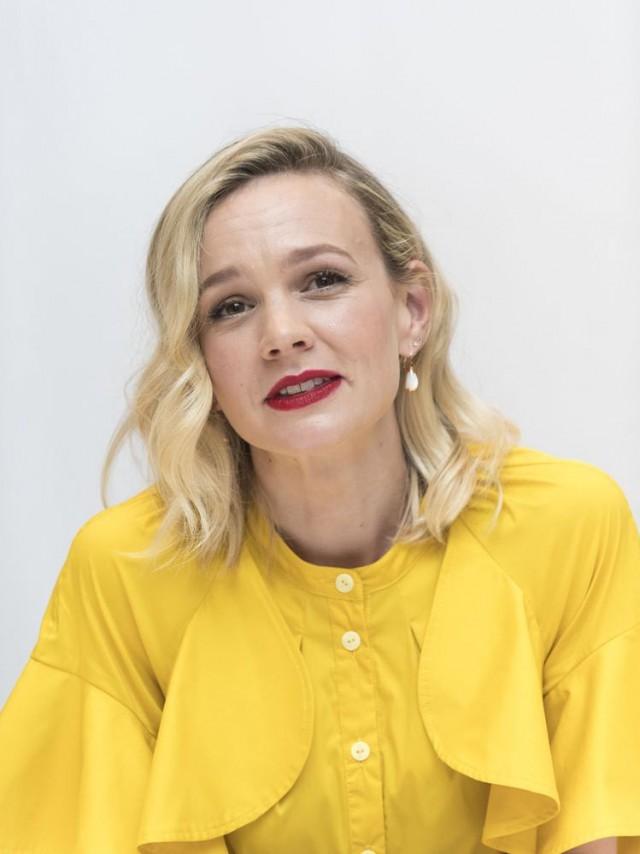
You have two kids – a girl and a boy. How do you teach mutual respect between men and women or how do you plan to tackle this issue with them?
They’re so little, they’re three and five but at this age, we’re just trying to teach them fairness and empathy and kindness. But I think that’s the kind of long way to where you need to be anyway, a lot of this about empathy and a lot of it is about basic human kindness.
And I think what was so interesting about making this film was that it really was looking at a lot of the cultural norms that we grew up with. Emerald (Fennell) and I are the same age. We’re both 35. We both grew up watching the same movies, same TV shows and what we show in our film we’ve seen in a million movies in the last 15 years.
None of this is new. We’re just seeing it from a different angle. And so I think by now reaching this point where we understand that those are the things that are not acceptable, hopefully from here on out, there’ll be somewhat of a responsibility for these things not to be used as broad comedy because they just aren’t funny. I think now we’re much more aware of that so I think culture informs us hugely and I imagine that children will be informed by what they see and I think we do have responsibility in that sense to tell stories that are truthful. — LA, GMA News




